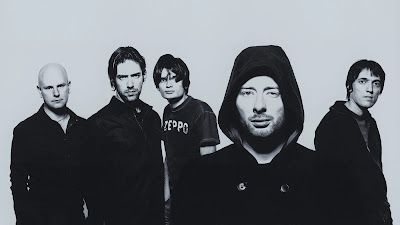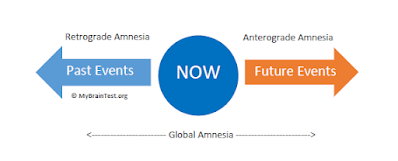I was inspired by a podcast called The 500 hosted by Los Angeles-based comedian Josh Adam Meyers. His goal, and mine, is to explore Rolling Stone Magazine's 2012 edition of The 500 Greatest Albums of All Time.
Album: # 320
Album Title: Amnesia
Artist: Radiohead
Genre: Experimental Rock, Electronica
Recorded: Three Studios, Paris, France, Copenhagen, Denmark, Oxford, UK
Released: May, 2001
My age at release: 35
How familiar was I with it before this week: A little
Is it on the 2020 list? No
Song I am putting on my Spotify Playlist: Knives Out
 |
| Album jacket for Kid A (2000) by Radiohead |
When I was a kid, it was not unusual for a band to release two critically well-received records relatively close together, sometimes within the short span of a calendar year. Genesis, Elton John and Led Zeppelin did it in the 70s. The Beatles, whose albums Revolver and Rubber Soul came out eight months apart in 1965 and 1966, created works so good that both made the top five on The 500 list.
 |
| Album jackets for Rubber Soul & Revolver (1965) The Beatles |
Prior to 1990, an album release typically meant a single, 12-inch vinyl record which was limited to about 23 minutes of material per side. Consequently, albums such as Rubber Soul and Revolver clock in at 35 minutes each.
However, after 1990, many artists released material with the rapidly growing compact-disc (CD) market in mind. A CD can hold twice as much music as a vinyl record. Collectively, Amnesiac and Kid A have a running time of 93 minutes, so Radiohead fans were delighted and surprised when the two records hit shelves so close together. It also got them thinking:
Was the material on Amnesiac just a collection of outtakes from the Kid A sessions?
Or
Was Amnesiac a continuation of the musical statement the British alternative band had started with the release of Kid A?
Both views held some truth. The recording of each album took place at the same time, between January and April, 2000. Then, in 2021, Radiohead released Kid A Mnesia, which combined the two records along with previously unreleased material and remixed versions of songs from the albums. This supported the long-held theory that both records were part of a unified theme, or musical journey, for the band.
 |
| Album Jacket for Kid A Mnesia (2021) Radiohead |
I gave a brief history on Radiohead in an earlier post, which included my relationship with the band's music. I have been a fan throughout their 30-year career, but seeing them live remains elusive. Although I did not follow them closely during the early 2000s when I was holding down three jobs, I was delighted to see Amnesiac on The 500 list. It was wonderful to spend a week delving into a record that I hadn't had time to fairly appreciate.
 |
| Radiohead (2000) |
The haunting, atmospheric and jazz-inspired Amnesiac is surreal and sometimes disorienting. It works well over morning coffee, but I wouldn't play it at a social gathering or as conversational background music because it requires sustained focus. And although I concentrated on the lyrics, the thing that kept sticking with me was the title.
An amnesiac is someone who suffers from a medical condition called amnestic syndrome that hinders memory. There are two types of this condition. In the first, anterograde amnesia, comprehending new information is difficult. The other, retrograde amnesia, impacts an individual’s ability to recall events. Sometimes, both forms of amnesia are due to trauma or connected to a progressive neurological disorder, such as Alzheimer's disease.
The thought of either horrifies me – life without memories? And life void of continuing new inputs can strip the unfortunate sufferer of a meaningful existence, trapped in an earth-bound limbo. There are others who suffer too, such as friends and relatives. No one wants to be a burden.
I've reached an age where people I know are struggling with their cognitive function and it is heartbreaking to see. A good friend visits his mother in a long-term care facility, but she no longer recognizes him. He's been outwardly courageous in accepting his family tragedy, but I also know it impacts him profoundly and I am at a loss over what to say or do to help him. When asked about the Amnesiac title, bassist Colin Greenwood said: "The record was like discovering a forgotten book buried deep in a library. This was a collection of songs that we didn't know we had (from the Kid A sessions). I suppose we knew we had them and had forgotten how proud we were of them, so we called them Amnesiac." |
| Radiohead bassist Colin Greenwood |
Perhaps, this is a helpful analogy when trying to come to terms with the cognitive decline of someone we love who has forgotten us. We still love them and we are still proud of the life that they left behind, even if it is buried deep in the library of their subconsciousness.









No comments:
Post a Comment